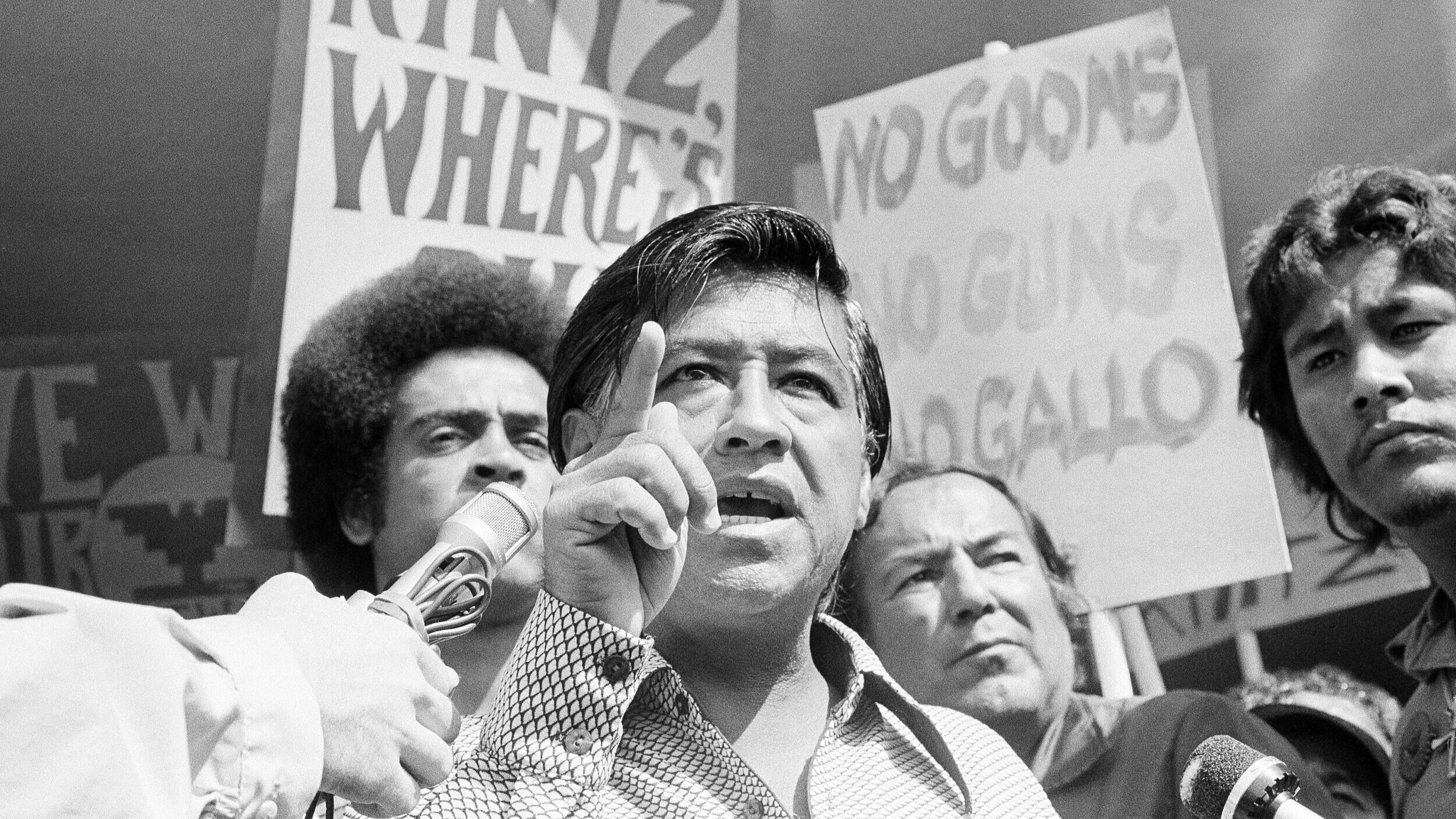Cesar Chavez Day
Cesar Chavez Day is celebrated on March 31st every year, the birthday of Cesar Chavez. Chavez was an American labor organizer and a civil rights activist. While he established many political organizations and unions, his most notable contribution to society was the creation of the National Farm Workers Association, which later merged with the Agricultural Workers Organizing Committee. Today, he is remembered as both a progressive organizer and the face of Latinx agricultural workers.
Chavez was deeply connected to his social movements from a young age. His father had grown up in the United States, while his mother had crossed the border as a baby. For most of his life, he lived in the familial home of his grandmother. He faced challenges while attending school, where he was forbidden to speak Spanish and forced to change his name from Cesario to Cesar. During the Great Depression, Cesar’s family fell into debt and were forced to move to California to become agricultural workers. He dropped out of school in 8th grade to help support his family.
Photo: Los Angeles Times
Though not every person’s experiences were the same, many farmworkers were paid unjustifiably low wages and faced harsh working conditions. Influenced by the injustices he saw at work and the injustices that his parents faced, he took bold action to offer services and representation to his fellow workers. His work is an inspiration to everyone, but it holds a particular significance to the Latinx community. Cesar led non-violent boycotts and protests that gave his organization negotiating power. He once said, “The fight is never about grapes or lettuce. It is always about people.”
Photo: NPR
Beyond helping agricultural workers organize, Chavez also worked with politicians to get laws passed. He worked with California Governor Jerry Brown in the mid-1970s to support the California Agricultural Labor Relations Act of 1975. The purpose of the Act is to “ensure peace in the agricultural fields by guaranteeing justice for all agricultural workers and stability in labor relations.” The Act outlines and preserves farm workers' rights to choose whether or not they want a union to bargain with their employer over their pay, hours, and other working conditions.



Photos: NPR
Though Chavez’s contributions were celebrated during his life, many of his greatest recognitions were posthumous. Cesar Chavez and his excellent contributions were celebrated by US President Bill Clinton in 1994. Helen, Cesar's widow, received the Presidential Medal of Freedom from President Bill Clinton in Cesar’s honor. It is the highest honor that can be bestowed upon a citizen. Furthermore, President Obama officially recognized Cesar Chavez Day in 2014. It is now a formal state holiday in US states of Arizona, California, Michigan, New Mexico, Washington, Utah, and Wisconsin, and many other states give it designation as an optional holiday.
Photo: NPR
Chavez’s work is still impactful today, as fruit picking and other agricultural labor is mostly done by unprotected and underrepresented people. In 2014-16, 27 percent of crop farmworkers were U.S. born, 4 percent were immigrants who had obtained U.S. citizenship, 21 percent were other authorized immigrants (primarily permanent residents or green-card holders), and the remaining 48 percent held no work authorization. Lacking negotiating power, these people rely on organized labor and collective action to represent themselves and to make sure that they are being treated fairly.
Photo: Los Angeles Daily News
The laws and organizations that Chavez helped organize deserve our celebration. Though Cesar Chavez is gone, his work continues beyond his lifetime, and we can learn from his example. The fruits of Chavez’s work are shared by many, and moving forward, we should all consider how and why we help others.
Photo: California Humanities
“We cannot seek achievement for ourselves and forget about progress and prosperity for our community... Our ambitions must be broad enough to include the aspirations and needs of others, for their sakes and for our own.”
Vocabulary list:
civil rights (n.) - the rights of citizens to political and social freedom and equality
union (n.) - an organization for workers that negotiates on their behalf
progressive (adj.) - in favor of social reform and implementing new ideas
Latinx (adj.) - a gender inclusive term used to describe people of Latin American descent or origin
Great Depression (n.) - the American financial downturn of 1929 that continued into thr 1930s
unjustifiably (adj.) - impossible to excuse or be defended
stability (n.) - something that is continuous and unchanging with time
preserve (v.) - to maintain something in its original state
posthumous (adj.) - occurring, awarded, or appearing after the death of the recipient
widow (n.) - someone who has lost their spouse
bestow (v.) - to present or award something
designation (n.) - giving someone or something a specific name or title
collective action (n.) - action taken together by a group of people whose goal is to enhance their condition and achieve a common objective
prosperity (n.) - being successful or thriving, especially regarding financial state
aspiration (n.) - the desire to achieve something
ABOUT THE AUTHOR
Bridgette Lang is an undergraduate student studying International Relations at Boston University. On campus, she helps run a collegiate Model United Nations Conference and manages finances for BU College Democrats. In her free time, Bridgette enjoys traveling, trying to learn Spanish, and visiting with her friends and family back home in Pennsylvania.








